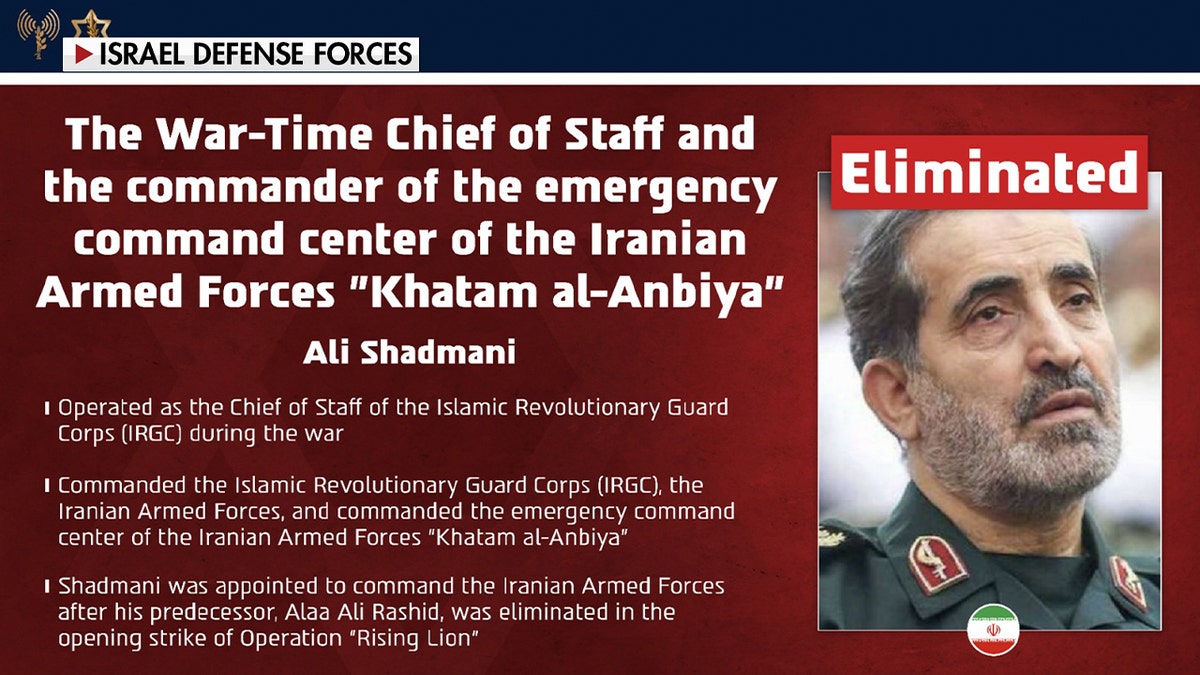Articles in this Cluster
18-06-2025
Israeli Prime Minister Benjamin Netanyahu has not ruled out assassinating Iran’s Supreme Leader Ayatollah Ali Khamenei amid intensified Israeli strikes that have killed several top Iranian commanders close to him. Netanyahu frames the campaign as targeting Iran’s “murderous” regime, not its people, and has called for Iranians to rise up—an appeal analysts say is unlikely to spur change. Experts note that killing Khamenei would not collapse Iran’s system, as the Assembly of Experts is poised to select a successor and the regime’s apparatus is resilient. Even a broader collapse could yield unpredictable outcomes, including potential IRGC dominance. Analysts argue regime change in Iran would require internal dynamics, not external pressure, and comparisons are made to the failures of the 2003 Iraq invasion and the outcomes of the Arab Spring. Despite rhetoric and strikes, there’s no sign of renewed mass protests inside Iran, where focus remains on immediate security threats.
Entities: Benjamin Netanyahu, Ayatollah Ali Khamenei, Iran, Israel, Islamic Revolutionary Guard Corps (IRGC) • Tone: analytical • Sentiment: neutral • Intent: analyze
18-06-2025
Israel says it killed Iran’s wartime chief of staff, Maj. Gen. Ali Shadmani, in an airstrike in central Tehran, days after he replaced Maj. Gen. Gholam Ali Rashid, who was also killed in earlier Israeli strikes. Shadmani, described as Iran’s top military commander and a close advisor to Supreme Leader Ali Khamenei, reportedly oversaw combat operations and approved attack plans. The strike is part of Israel’s Operation Rising Lion, which has targeted key figures in Iran’s military and nuclear programs. The IDF pledged to continue pursuing Iranian leadership using intelligence, air superiority, and complex operations.
Entities: Israel, Iran, Ali Shadmani, Gholam Ali Rashid, Ali Khamenei • Tone: analytical • Sentiment: neutral • Intent: inform
18-06-2025
Iran’s Revolutionary Guard said it fired hypersonic missiles at Israel as their conflict entered a sixth day. Israel began special flights to repatriate citizens stranded abroad after widespread cancellations, with many routing through Cyprus. Casualties in Iran from Israeli strikes have reached at least 585 dead and 1,326 injured, according to a rights group. Iran warned it will respond firmly if the US directly enters the conflict and vowed strong retaliation to Israeli strikes. Beijing said nearly 800 Chinese nationals have been evacuated from Iran. Reports indicate Israel is running low on Arrow missile interceptors, while Iran claimed to down an Israeli Hermes drone, arrested suspected Mossad agents, and said police intercepted drones and identified production sites. Israel said it struck an Iranian centrifuge production facility and other weapons manufacturing targets. Ayatollah Khamenei vowed “no mercy” for Israel following US political rhetoric escalating tensions.
Entities: Iran’s Revolutionary Guard, Israel, hypersonic missiles, Arrow missile interceptors, Ayatollah Ali Khamenei • Tone: urgent • Sentiment: negative • Intent: inform
18-06-2025
Israel’s strikes on Iran since 13 June have focused on decapitating military leadership, targeting nuclear expertise, and degrading key infrastructure. High-profile kills include Iran’s top military officer Mohammad Hossein Bagheri; IRGC commander Hossein Salami; IRGC intelligence chief Mohammed Kazemi and his deputy; emergency HQ head Gholam-Ali Rashid and his successor; plus six senior nuclear scientists, including former atomic agency head Fereydoun Abbasi-Davani and physicist-university president Mohammad Mehdi Tehranchi. Infrastructure hits include nuclear sites at Natanz, Isfahan, and Fordow; an IRGC missile base in Kermanshah; Revolutionary Guards HQ in Tehran; air defenses; and energy facilities, alongside strikes in major cities and civilian areas. Analysts say Israel aims to cripple Iran’s nuclear progress, weaken the regime, and potentially foment regime change by destroying capabilities and will—mirroring tactics used against Hezbollah. U.S. policy under Trump appears to support limiting targets to the nuclear program while avoiding direct moves against Supreme Leader Khamenei, though Washington is weighing options including a potential U.S. strike. Iran denies pursuing a bomb and has launched sustained retaliatory strikes against Israel.
Entities: Israel, Iran, Islamic Revolutionary Guard Corps (IRGC), Mohammad Hossein Bagheri, Hossein Salami • Tone: analytical • Sentiment: negative • Intent: inform
18-06-2025
Israel’s Mossad is reported to have executed a wide-ranging covert campaign inside Iran, including targeted killings of senior Revolutionary Guard officials and nuclear scientists, sabotage of air defenses and missile sites, and the clandestine smuggling and deployment of drone components. The operations, allegedly enabled by deep infiltration, local informants, and exploitation of Iran’s internal ethnic and social fissures, secured Israeli air superiority over Tehran and limited Iran’s missile retaliation. While experts praise the intelligence prowess and meticulous preparation behind the strikes, former officials caution that these are tactical gains; without a clear long-term strategy, a prolonged war of attrition could ultimately harm Israel.
Entities: Mossad, Iran, Israel, Islamic Revolutionary Guard Corps (IRGC), Tehran • Tone: analytical • Sentiment: neutral • Intent: inform
